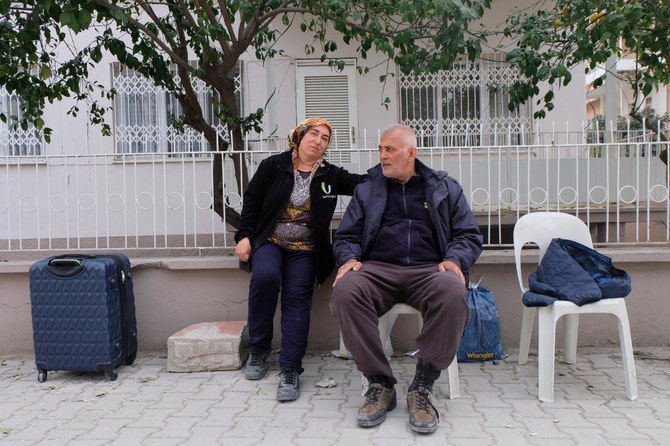OSMANIYE, Turkiye: In the nearly-deserted center of the southern Turkish city of Osmaniye, an elderly couple wait by the ruins of the three-story building where they lived, hoping their life savings might emerge from the debris when it is cleared.
Reyhan Vural, 48, and her 59-year-old husband Metin survived the devastating Feb. 6 quake that killed more than 50,000 people in Turkiye and Syria. But like many who made it out alive, they now struggle with having lost nearly everything.
The Vural family and many others kept decades-worth of savings at home in the form of gold — usually coins or jewelry — a long-standing practice in Turkiye and the Middle East where storing the precious metal at home is often trusted more than depositing cash in a bank.
“Our everything is in the rubble,” Vural said, gesturing at the mound of debris that was her home on a quiet street lined with citrus trees. “We were going to buy a house and the gold for it was in there,” she said.
Vural and her husband come to the wreckage every day to see if they could locate their valuables. “I know where the gold is, so when the diggers come, I’ll ask them to stop for a moment to see if I can get it out.”
Turkiye’s residents have also increasingly favored buying gold to shield themselves from rampant inflation and a steep decline in the value of the Turkish lira in recent years.
“No-one believes in the state. They believe in gold,” said a contractor clearing rubble and who declined to give his name.
Authorities are swiftly clearing the rubble and starting to focus on rebuilding for the millions who lost their homes.
But the disaster zone is still dotted with people who wait by the ruins and sift through the wreckage to find their valuables.
BRIDE’S GOLD
Hatice Yigit, 57, survived six days under the rubble of an apartment block in Antakya before being rescued by British emergency workers. After recovering, she went back to the site, hoping to retrieve some 50,000 Turkish lira ($2,600), mostly in gold, saved up for her daughter’s marriage.
“It’s all in there. Even my dreams are in there,” she said.
Her daughter’s wedding may need to be postponed for some years if she doesn’t find it, she said.
Gold is meant to give a financial head start to newly-weds.
Others fear they will never find their savings.
Fadi Kabbani, originally from Idlib, Syria, lost his wife and seven-year-old son when the building he lived in collapsed.
He now lives in a makeshift tent, but said the $1,000 worth of gold he lost, while not a large sum, would have secured better lodging and food for him and his surviving son.
It took four days to be able to retrieve his wife’s body, he said. “We didn’t think about anything else... now, we are sure there is nothing left.”
















